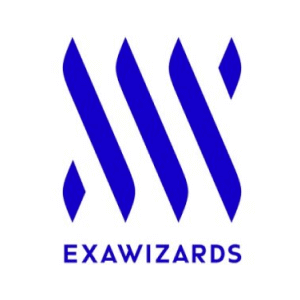Updated April 15, 2025
Work from Anywhere in Japan: 31 Companies with Country-wide Remote Work [Apr 2025]
It looks like remote work is here to stay.
Before the pandemic, most companies would’ve never considered it. But now they’ve had to adapt, and many employees have come to expect a remote work environment. Now, remote work is common practice in a wide variety of industries — and it’s especially common in tech.
In Japan, many tech companies are working remotely. And some tech companies allow employees to work from anywhere in Japan. That means you can work for a Tokyo-based company and live in a totally different area of the country, like Hokkaido.
This can be a great way to earn a big-city salary while saving on expenses and getting to experience other areas of Japan. So in this post, I’ll introduce companies that allow remote work from anywhere in Japan.
Let’s dive right in!
In this article: 📝
Remote Work in Japan
Japan’s work culture has a bit of a mixed reputation.
The country is known for its high work ethic and discipline, and the idea of working from home wasn’t exactly welcomed with open arms when it was first introduced. But since the pandemic, many tech companies are continuing to work remotely.
It doesn’t mean that everything’s changed, of course. Many older, more traditional companies are kindly requesting their employees to return to the office, and some have already completely switched back to office work.
Luckily, this isn’t the case for the international tech scene (i.e. the companies represented on Japan Dev). There are lots of tech companies that have “seen the light,” and they aren’t going back to the office any time soon.
By the way, we have a separate article introducing companies that hire from anywhere in the world. So check it out if you want to find companies that even allow you to work from overseas.
Let’s take a look at some of the best companies that allow working from anywhere in Japan and talk about each one a little bit.
Sales Marker
Sales Marker is an AI-powered sales prospecting company that helps businesses generate leads more effectively. Their platform uses machine learning to identify potential customers and optimize sales strategies.
As a remote-first company, Sales Marker enables employees to work from anywhere in Japan. While certain roles may require occasional office visits, the company prioritizes flexibility and work-life balance.
Sales Marker’s work culture emphasizes asynchronous communication and autonomy, making it a great fit for independent, result-driven professionals.
LY Corporation
LY Corporation is one of Japan’s largest digital service companies, formed from the merger of Line and Yahoo Japan.
The company operates various internet services, including messaging, e-commerce, and fintech solutions.
LY Corporation follows a hybrid remote work model, allowing employees to work remotely while still maintaining office spaces for collaboration. The company also actively recruits new graduates, making it a great opportunity for students or early-career professionals looking to start their careers in tech.
Mercari
One of the most successful startup companies in Japan, Mercari, is Japan’s first unicorn. A unicorn refers to a privately funded startup with a value of 1 billion USD, as I explained in my other post on startups in Japan.
Mercari provides an online marketplace app where users can buy and sell their used items. The company was founded in 2013 and currently has over a thousand employees.
The company started to work remotely during the pandemic and has been doing so ever since.
Recently, Mercari created a permanent system called “your choice,” which allows all employees to choose whether they’ll work from home or at the office. It’s an “anywhere in Japan” type of deal, which means you don’t have to be in Tokyo to even apply for a job.
Overall, Mercari also has great benefits when it comes to time off. On top of the national holidays and traditional ones like the summer holiday or year’s end, they also provide additional leaves for childbirth, sickness, honeymoon, and even for taking a mental break.
Mercari has a flex-time system for dev-team members, and the core hours are between 12 PM to 4 PM with an hour-lıong lunch break in between.
Autify
Autify is a company that provides AI-powered automation software for software testing.
While the company already allowed working remotely one day a week before the pandemic, they’ve since switched to full remote work.
Autify works on full-flex time, which I explained in my post about flex time in Japan.
Basically, it means that there are no predetermined work hours, and employees choose to work whenever they want as long as they average a certain time daily or complete their daily tasks. For Autify, the condition is an average of 8 work hours daily.
In addition to the national holidays in Japan, Autify also offers 10 days of paid time off and 5 days of sick leave.
TOKU
TOKU aims to address the most significant issues facing leading crypto companies around token compensation and tax compliance.
TOKU’s services include Token Grant Administration, Employer-of-Record, and Professional Employer Organization. They aim to simplify the compensation process of tokens while delivering the best possible user experience, world-class solutions, and adherence to regulatory compliance.
They are on the lookout for new team members who are collaborative and self-starters. They offer flexible working hours and prioritize remote work from anywhere in Japan.
Moneytree
Moneytree is a company that provides financial data analysis and other accounting services to companies, as well as a personal finance app for consumers. The company was established as a startup in 2012.
Most importantly, though, Moneytree is a remote-first company. The only requirement is to be located somewhere in Japan.
Employees are free to work at the offices if and when they wish to, but Moneytree promises that the remote work model is permanent and that no employee will be forced to return to the office.
The company has a flex-time policy with core working hours between 10 AM and 4 PM, but a typical workday starts at 10 AM and is done by 7 PM.
As for the time off perks, Moneytree offers a whopping 20 days of paid time off, which is pretty good in Japan. There are also 10 days of sick leave in addition, which isn’t common in Japan at all.

Accredify
Based in Singapore, Accredify is a multi-award-winning service provider in the Asia Pacific, specializing in issuing verifiable documents and information through the facilitation of automation and secure information exchange.
Accredify allows organizations to generate, distribute, and promptly authenticate tamper-resistant digital documents, commonly called Accredified Documents.
These Accredified Documents contribute to the digital transformation of your business by establishing automated and efficient procedures for the secure and reliable exchange of information.
While their HQ is in Singapore, they have an office in Fukuoka. They are looking to hire applicants who can work remotely from anywhere in Japan.
Fujitsu Launchpad
Fujitsu Launchpad , based in Tokyo and operating as a venture studio subsidiary of Fujitsu Limited, acts as an institutional co-founder within the corporate venture studio framework. In this capacity, they actively invest in and develop ventures from their initial conceptual stages. Their objectives include building new ventures from the ground up, finding product-market fit, driving profitable business growth, and ensuring substantial returns on investment.
Currently, Fujitsu Launchpad is involved in the incubation of ventures across multiple geographies and sectors, such as AI-enabled B2B SaaS tools, an IoT consumer application, and a sports training/community platform.
They offer 20 days of paid leave per year, plus all national holidays, as well as relocation and VISA support for overseas applicants.
PayPay
PayPay is a fin-tech company that provides an online payment app. The Tokyo-based company was founded as a startup in 2018.
After the pandemic, the company adopted a unique system called “Work from Anywhere at Anytime,” and it’s exactly what it sounds like — albeit with one caveat. You need to be located in Japan, and you may be asked to come to the office every once in a while for team meetings.
PayPay also has super flex-time, which means that they have no core hours.
The paid time off perks at PayPay are pretty standard, as they provide the paid time off designated by law, which is 10 days. However, you also get 5 days off for the year’s end vacation, as well as Japanese national holidays.
PayPay Card
PayPay Card is a Fintech company that provides credit card and payment services as part of the broader PayPay ecosystem. Their offerings include credit card issuance, digital transactions, and cashback reward programs designed to streamline cashless payments in Japan.
The company integrates its financial services with the popular PayPay mobile payment app, making it easier for users to manage transactions seamlessly.
PayPay Card operates with a flexible hybrid work model, allowing employees in engineering, product development, and various other roles to work remotely while maintaining the option for in-office collaboration when necessary.
Scoville
Scoville is a company that works in a wide variety of industries like education, human resources, and healthcare. Their work is mainly focused on business-to-business (B2B) solutions, but they also provide business-to-customer products as well.
The paid time off system at Scoville is a bit different, as you get a set amount of 36 days off, but this includes all national holidays as well. The company has a flex-time work system where employees are free to decide when they work.
They’re open to remote work from anywhere in Japan, but offices are open to all employees if they wish to work in an office.
Zig-Zag
Zig-Zag is a company that provides an international shopping platform called “WorldShopping.” The platform connects buyers and sellers worldwide.
Unlike many others on the list, Zig-Zag has predetermined work hours, which are between 10 AM and 7 PM. However, the company is pretty relaxed when it comes to working from home. They allow employees to work from anywhere as long as they’re in Japan.
Zig-Zag’s time off benefits are pretty standard, as everything’s set up according to the Japanese Labor Standards Law. Employees get 10 days of PTO in their first year, and the number increases every year by one until it reaches a maximum of 20 days.
In addition, Zig-Zag provides a long end-of-the-year holiday, as employees can take 2 weeks in December and 3 days at the beginning of January.
Tripla
Tripla is an IT company that provides AI-powered chatbots for various industries, including banking, tourism, and e-commerce.
The company is pretty relaxed, as the work-hour system is flex time, and there are no core hours, either. Dev teams are free to choose when they work as long as they don’t fall behind on tasks.
Tripla also has a work-from-anywhere-in-Japan policy. However, the company expands this policy by hiring people who reside in Taiwan as well.
The time off system at Tripla is also set according to Japanese laws. After getting 10 days of PTO in your first year, you get one extra day each year until you reach a maximum of 20 days off annually.
Cybozu
Cybozu, a leading Japanese software development company, is recognized for delivering collaborative software solutions tailored for businesses and organizations. At the forefront of their offerings is "Kintone," a versatile workplace platform.
Kintone excels in organizing team data, streamlining workflows, and facilitating seamless communication, all within a centralized hub. This platform is designed to enhance and simplify the overall work experience for teams.
Cybozu’s method of full remote work integrates a flexible work schedule, as the core hours are between 9 AM and 6 PM JST.
Also, Cybozu offers a whopping 20 days of PTO annually in addition to the traditional and national Japanese holidays.
Merpay
Merpay is a fin-tech startup, and it’s owned by Mercari, Japan’s first unicorn startup we mentioned earlier. The company’s main activities are focused on payment and credit card processing.
Since Merpay is Mercari’s subsidiary, the company also benefits from the “your choice” work system I mentioned above. Employees are completely free to choose whenever and wherever they work, as long as it’s in Japan.
Merpay’s work-hour system is also flex-time with core hours, which are between 12 PM and 4 PM, with an hour of lunch break in between.
Unlike most companies on the list, Merpay offers a 10-day sick leave in addition to the 10 days paid time off annually, which is kinda unheard of in Japan. Moreover, you get all the Japanese national holidays, as well as the summer and year’s end vacations.
YStory
YStory is a FemTech company focused on developing innovative health solutions for women. Their products and services aim to improve women’s well-being through technology-driven healthcare solutions.
YStory offers a flexible, remote work policy, allowing employees to work from anywhere in Japan. The company fosters an inclusive and collaborative work environment where employees can balance professional growth with personal responsibilities.
RESTAR
RESTAR is a pro tech company revolutionizing the real estate industry through AI-driven analytics and solutions.
The company’s platform helps real estate professionals make smarter investment decisions by utilizing big data.
This is another remote-friendly company that gives employees the flexibility to work from home while utilizing digital collaboration tools.
The company’s work environment encourages innovation and autonomy, making it an excellent option for engineers and data professionals who thrive in a remote-first setting.
Datachain
Datachain is a Blockchain technology company that specializes in interruptibility solutions for distributed ledger systems. Their goal is to enable seamless communication between different blockchain networks, making transactions and interactions more efficient.
Datachain follows a remote-first approach, allowing their employees to work from anywhere. The company offers professionals the opportunity to work at the cutting edge of blockchain technology while enjoying the benefits and flexibility of a fully remote work arrangement.

SIVA
SIVA is a software development company dedicated to improving digital marketing efficiency and emphasizing meaningful outcomes. Their solution, Squad Beyond, tackles technical issues and overall waste in digital marketing. The company's goal is to expand user possibilities across technology, skills, resources, and collaboration.
SIVA supports a flexible remote work policy for its members, allowing them to work primarily from home. However, they do expect members to be available to come into the office when necessary. It's important that members reside within a reasonable commuting distance from the office as a general requirement. Most of their positions are open for country-wide remote working set-up, but they have a few open positions available in a global remote setting.
Givery
Givery strives to bridge the gap for our clients in scouting, recruiting, and training top-notch engineers. Their clients include leading names in the Japanese technology and gaming industries.
They have a diverse team with members from various parts of the world, and they are currently seeking skilled individuals to contribute to the expansion of "track," a platform designed to assist companies in assessing and enhancing software engineering skills.
Business-level Japanese proficiency is a prerequisite for their current positions and is also available for remote work anywhere within Japan.
KOMOJU
KOMOJU is a product of the Japanese company, and it offers payment solutions to companies around the world, with TikTok and Steam among their top clients.
Even though Komoju has somewhat pre-determined work hours for other departments, developer teams get to enjoy the perks of full flex time and allows their members to work from anywhere in Japan.
KOMOJU has great benefits, as the annual PTO is 10 days in the first year, and this number increases with each year you work there. The company also offers 5 days off on both summer and end-of-the-year holidays, as well as a day off on your birthday.
Peatix
Peatix provides one of the most popular event registration and ticket sale platforms in Japan.
The company is working remotely and intends to continue doing so even after the pandemic is no longer an issue. As coming to the office is not required at all, the company hires from anywhere in Japan, including other countries.
A usual workday at Peatix lasts 8 hours with an hour-long lunch break. The company works on flex time, which means that employees get to decide when they fulfill their daily 8 hours.
Peatix provides pretty decent paid time off, as they provide 20 days of PTO yearly, in addition to 5 days of personal leave, which isn’t common practice in Japan. They also provide time off during national holidays, of course.

Cybereason
Cybereason is a cybersecurity company that utilizes the power of AI to provide security systems for electronic devices.
Employees at Cybereason can live anywhere in Japan, as the company works fully remotely. They only require you to come to the office on your first day at work, which is reasonable.
The company has fixed work hours. A typical workday at Cybereason starts at 9 AM and ends at 5:45 PM.
Cybereason offers the standard paid leave of 10 days, in addition to 3 days of year’s end vacation and 5 days of sick leave. The lattermost is usually included in your paid vacation days in Japan and isn’t provided separately.
Acompany
Acompany is a privacy-tech startup focused on secure data processing and compliance solutions. Their core product, AutoPrivacy, enables businesses to handle personal data while meeting privacy regulations like GDP and Japan’s Act on the Protection of Personal Information (APPI).
The company’s platform uses advanced cryptographic techniques, such as secure, multi-party computation, to allow data analysis without exposing sensitive information.
Acompany operates with a remote-friendly culture, offering employees the option to work from home or at their office. Their teams enjoy flexible work schedules, allowing them to maintain a healthy work-life balance.
MODE
MODE is an IoT and data infrastructure company dedicated to helping businesses harness the power of real-time data. Their cloud-based platform enables organizations to collect, analyze, and manage IoT-generated data more efficiently, optimizing everything from smart city infrastructure to industrial automation.
The company is committed to building a flexible work environment, currently allowing employees to work remotely. However, they’re considering shifting to a hybrid model, which may require employees to visit the office once or twice a week.
This setup is great for those who appreciate a nice balance between remote independence and in-person collaboration. With a dynamic work environment, those looking to work in IoT data and cloud computing will feel right at home at MODE.
Findy
Findy is an HR-tech company that leverages AI to match skilled engineers with companies based on their coding abilities and experience.
Their core product, Findy Score, evaluates developers’ skills using AI, helping companies hire top talent efficiently. They also provide recruitment solutions for startups and large enterprises looking for experienced engineers.
Operating as a remote-first company, Findy allows employees to work from anywhere in Japan. Their working environment emphasizes flexibility, autonomy, and productivity, enabling team members to set their own schedules while staying connected through effective digital collaboration tools.
Quollio
Quollio is a data solutions company that focuses on business intelligence and analytics, providing organizations with tools to better understand and utilize their data. The company’s platform integrates data from multiple sources, enabling companies to generate real-time insights and improve decision-making.
Their team consists of engineers, scientists, and analysts who collaborate to build scalable data infrastructure. For professionals interested in large-scale data processing and analytics solutions, Quollio offers the advantage of supporting remote work arrangements.
Quollio operates as a remote-first company, allowing employees to work from anywhere in Japan. The company emphasizes flexibility, supporting asynchronous communication and results-driven workflows.
Tailor
Tailor provides easy-to-use software development applications that help businesses build their own core systems (ERPs).
Tailor is another company that embraces remote work, as they’re currently working fully remotely and have no intentions to change this. The company hires employees from anywhere in Japan.
Tailor works on a full-flex time system, which allows employees to decide when they work and for how long. However, the usual corporate work hours are between 10 AM and 7 PM, but that’s not enforced.
The company provides a standard 10 days of paid time off in addition to national holidays.
Fragcolor
Fragcolor is a Kyoto-based game studio. The company has a multi-platform app that allows developers to build games easier. Their app, or game engine, also helps designers create assets and content for video game-making and virtual world-building.
Even though Fragcolor is located in Kyoto, the company hires from all over Japan. It’s a permanent thing, too, as they intend to keep working remotely even after the pandemic is over.
As for the time off perks at Fragcolor, there isn’t sufficient information at the time of writing. However, the legal minimum is guaranteed, which is 10 days yearly.

Colorkrew
Colorkrew is a company that works in diverse fields. They have products for cloud management, app development, and payment authentication. Furthermore, they also have products that make working enjoyable, like Goalous, which is a social media-like app that gamifies team/project management.
The company generally allows remote work from anywhere in Japan, but keep in mind that you may be asked to visit the office every once in a while.
Colorkrew has a flex-time system with core hours between 10 AM and 2 PM, but there’s a one-hour lunch break in between.
The company also provides 10 days of PTO in the first year, which will increase yearly according to the Japanese Labor Standards Law. In addition, Colorkrew offers situational leaves like childbirth or honeymoon and 5 extra days for summer and 5 more for winter vacations.
AIRVISA
AIRVISA offers a cloud-based software service designed to streamline and simplify visa management and processing procedures for foreign workers in Japan. Their SaaS solution helps companies comply with legal requirements while allowing foreign nationals to complete their visa processes online conveniently.
To make their remote working conditions more attractive, AIRVISA has introduced "Remote HQ," a support initiative that covers the costs of setting up a remote work environment tailored to individual needs, including items like chairs and displays.
Conclusion
Japan might be notorious when it comes to its work culture, but this certainly doesn’t represent reality.
As you see, I’ve talked about 30 companies in this post, and they all have pretty decent work conditions. Some of them even have great time off benefits and super-flexible hours.
These aren’t the only ones, either. It’s just a selection I’ve put together, but there are many more to discover.
If you’re looking for a job in Japan, I recommend you check the company list on the Japan Dev website. It’s personally vetted by the Japan Dev team, and we add new companies frequently.
As I conclude this post, I also would like to share a guide I’ve prepared for finding software developer jobs in Japan. It should provide you with all the basics you’ll need and guide you through every step of the process.
P.S: want to see companies that allow you to work anywhere in the world? Check out our list of worldwide remote companies. It lists Japanese and international tech companies that allow you to work from abroad as well as anywhere in Japan.
Get Job Alerts
Sign up for our newsletter to get hand-picked tech jobs in Japan – straight to your inbox.







